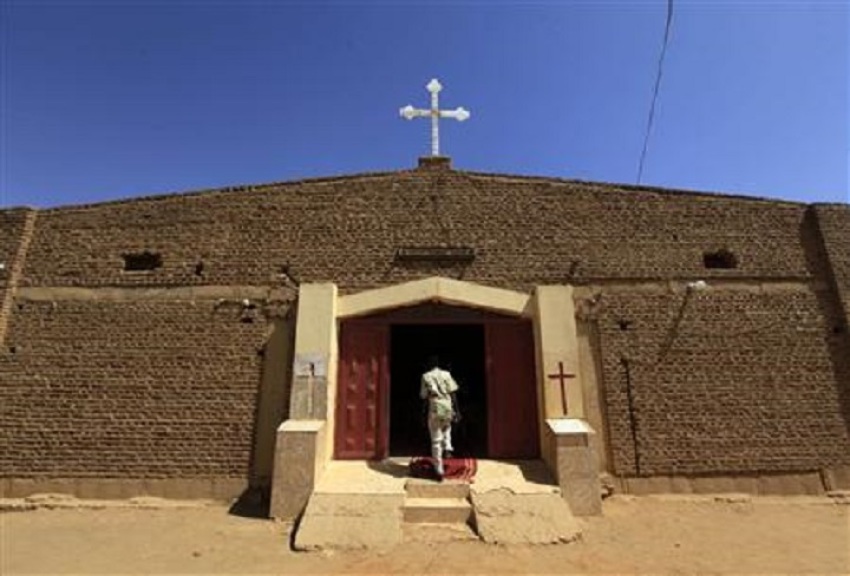Sudan reopens case of 8 church leaders who refused to give up denominational control

A criminal case has been reopened against eight Sudanese church leaders who refused to give up control of their church to an unelected government-appointed committee.
Christian Solidarity Worldwide reports that the case involves members of the Sudanese Church of Christ executive committee who were charged with trespassing at the church's headquarters.
The eight pastors from the predominantly Nuban denomination were arrested in August 2017. Among them were SCOC Moderator Ayoub Mattan and SCOC head of missions Kuwa Shamaal.
But last August, a judge dismissed the criminal case against the pastors because he considered the issue at hand to be an administrative dispute and not a criminal one. At the time, the judge's decision was praised by rights advocates who claimed that the criminal case was a "politicization of the criminal justice system."
CSW, a United Kingdom-based advocacy nonprofit that serves in over 20 countries around the world, reported that the verdict was appealed and higher courts ruled that a criminal trial should proceed against the pastors.
Attorneys familiar with the case told CSW that the courts were presented with documents from the Ministry of Guidance and Religious Endowments.
International Christian Concern, another nonprofit that advocates on behalf of persecuted Christians, reports that those documents claimed that the eight leaders were not actually leaders of the church. ICC claims that the allegation from the government ministry is false.
The Ministry of Guidance and Religious Endowments is the same regulatory body that has in the past issued bans on the construction of churches in Khartoum and also interfered with the administration of Christian denominations, according to CSW.
“We are extremely concerned to hear that the executive committee of the Sudanese Church of Christ is once again facing criminal charges," CSW Chief Executive Mervyn Thomas said in a statement. "The re-opening of the case against them highlights the manifold discrimination and harassment faced by religious and ethnic minorities in Sudan. It also underscores the vulnerability of Sudan’s marginalised communities and the urgent need for legal reform to protect the rights of these communities.”
According to Open Doors USA's 2019 World Watch List, Sudan ranks as the sixth-worst country in the world when it comes to Christian persecution as it had been ruled by the authoritarian government of President Omar al-Bashir since 1989 before he was deposed in April.
"Under his charge, the country has been ruled as an Islamic state with limited rights for religious minorities," Open Doors warned in a factsheet. "The state places heavy restrictions on freedom of speech or press. Christians face constant discrimination and pressure — additionally, multiple church buildings were demolished in 2017 and 2018, leaving some Christians without a place to worship."
As a predominantly Nuban denomination, the SCOC has faced both religious and ethnic discrimination similar to those experienced by the Sudan Evangelical Presbyterian Church. According to CSW, SEPC land was sold by a government-backed church committee to developers.
But with Bashir overthrown, advocates and religious leaders had hoped for a new government to usher in respect for human rights and religious freedoms. But the reopening of the criminal case, according to CSW, is one of the first religious freedom violations to have happened since Omar was overthrown.
Additionally, dozens have been killed as a result of violent crackdowns on protesters in Sudan. Additionally, civilians have been attacked by the militia group Rapid Support Forces, which is said to be "responsible for more reported fatalities and more instances of violence against civilians than the military and police combined" since Dec. 19, 2018.
In June, the Africa Union suspended Sudan's membership amid the upsurge in violence n Khartoum.
A political agreement between the military and civilian protestors represented by the Forces for Freedom and Change (FFC) was reached in July and the two sides are working on a constitutional agreement.
According to CSW, FFC has stated that Christians and other marginalized groups will be included in their government.
“CSW welcomes the statements by the FFC regarding its intention to ensure equal representation of communities that have been historically marginalised," Thomas said in concluding his statement. "However, full and comprehensive reforms are needed in order to realise the call for freedom, justice and peace for all Sudanese nationals on the basis of equal citizenship."



























